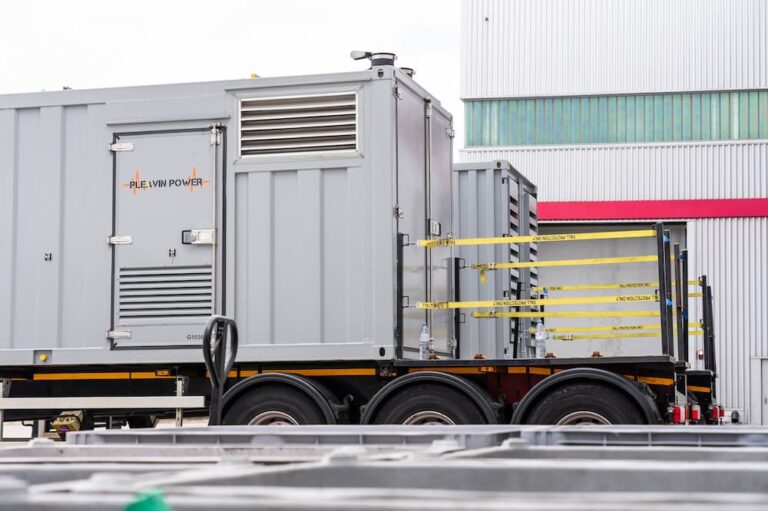Many people seem to think that generators are a fairly simple thing to purchase and that there are not very many things to consider beyond the safety precautions, however, this is not the case!
There are plenty of different considerations that you should think about when buying a new generator, especially the type that you buy as these can be useful for completely different jobs.
Throughout this blog, we are going to be discussing the different types of generators that you can hire and the best ways in which you can utilise each of them.
Whole House
A whole house generator is one of the more commonly found household power generators and due to their great power output, they are able to power most of your appliances when the power is out!
They are a great asset to have in the case of a power failure as they can be used with an existing fuel supply in your home.
Many whole home generators tend to have a backup power source such as solar or gasoline which simply consolidates its ability to run without fuel in your home.
There is even the possibility for you, if you buy a newer model of generator, to use an app to be given regular updates about the state of your generator which could definitely be of use in areas where power outages and extreme weather conditions are common.
Some of the greatest advantages of a whole house generator are that they activate automatically and are connected to your home circuit boards meaning they are actually very easy to use.
However, they can be rather expensive to buy in one lump sum of money and tend to be rather loud which is definitely something to consider in urban areas.
Portable Generator
Portable industrial generators are exactly as they sound, they are smaller versions of typical home generators that can still be used for a great deal of new uses.
Standard portable generators are able to be used with gasoline, solar power or propane making them much easier and cheaper to operate than whole-house generators.
The advantages of these kinds of units include the fact that they are very easy to move and carry as well as their compatibility with small household power tools.
This type of generator does come with its fair share of drawbacks though as they are incredibly noisy, will not turn on automatically and absolutely must be placed at least 20 feet from your home.
These are great tools to be able to have at your disposal however the reduced power and the inconvenience of noise may turn you onto another type of electricity generator.
Inverter Generator
An inverter generator works completely differently from the previous entries in this article, however, they are just as useful!
These types of generators adjust their engine speed to match the number of electrical necessities that they are required to meet.
This delivers a fantastic energy efficiency and noise pollution reduction that portable and whole house generators simply cannot boast as well as the key advantage that they produce completely clean energy!
Furthermore, these are just as manoeuvrable as portable generators and are incredibly easy to maintain. While this does come at a slightly higher price, we believe that these are some of the best value generators on the market.
Gasoline Generator
The most common of all electrical generators is the gasoline generator, found in many households in the UK and the US respectively.
Gasoline generators offer great uses for low-powered household appliances and tools making them generally the least expensive generators that money can buy.
Gas is a readily available resource in many areas of the world making them most likely to be the most accessible generators for most people.
It can, however, be a rather challenging task to store gasoline in airtight containers for the eventuality of when you need them, coupling this fact with the increase in carbon emissions may make many people wish to look elsewhere for backup electricity.
Diesel Generator
Diesel generators are, more often than not, the best type of generator if you live in an area prone to extreme weather, may this be hot or cold.
These generators operate much more efficiently than gasoline, making them much cheaper to operate and maintain.
Much like gasoline, however, these are prone to emitting some harmful gases into the air as well as noise pollution, meaning they are only safely operable outdoors which can be an inconvenience to some.
Solar Generator
Solar generators are the future of electricity generation as they produce cleanly converted energy from the sun to run appliances.
Solar panels produce zero emissions which are fantastic for the environment and also mean that they are one of the only types of generators that can be used indoors!
This means that they will always be easily accessible and are very easy to maintain long-term. Despite this, there are some issues with the power output that they deliver.
Their relatively low power output means that they may not be as reliable as others in an emergency situation but are a fantastic choice for people in areas unlikely to be struck by regular power cuts.
Natural Generator
Natural gas generators are another of the more environmentally friendly types of home electricity as they produce far fewer emissions than diesel and gasoline.
These generators (natural gas) are typically some of the most cost-effective as they do not need any storage and can get the natural gas by connecting to existing gas pipelines.
However, their major drawback is that they are not only expensive to buy initially, but are rather pricey to upkeep as well making them a really difficult investment for many people.

Jack is the owner of Pleavin Power which was founded in 2017. He has worked in the power industry for over a decade and has an extreme focus on providing a quality service to clients across the UK. This has led Pleavin Power to becoming the market leader in the Critical, Prime & Standby Power markets.








